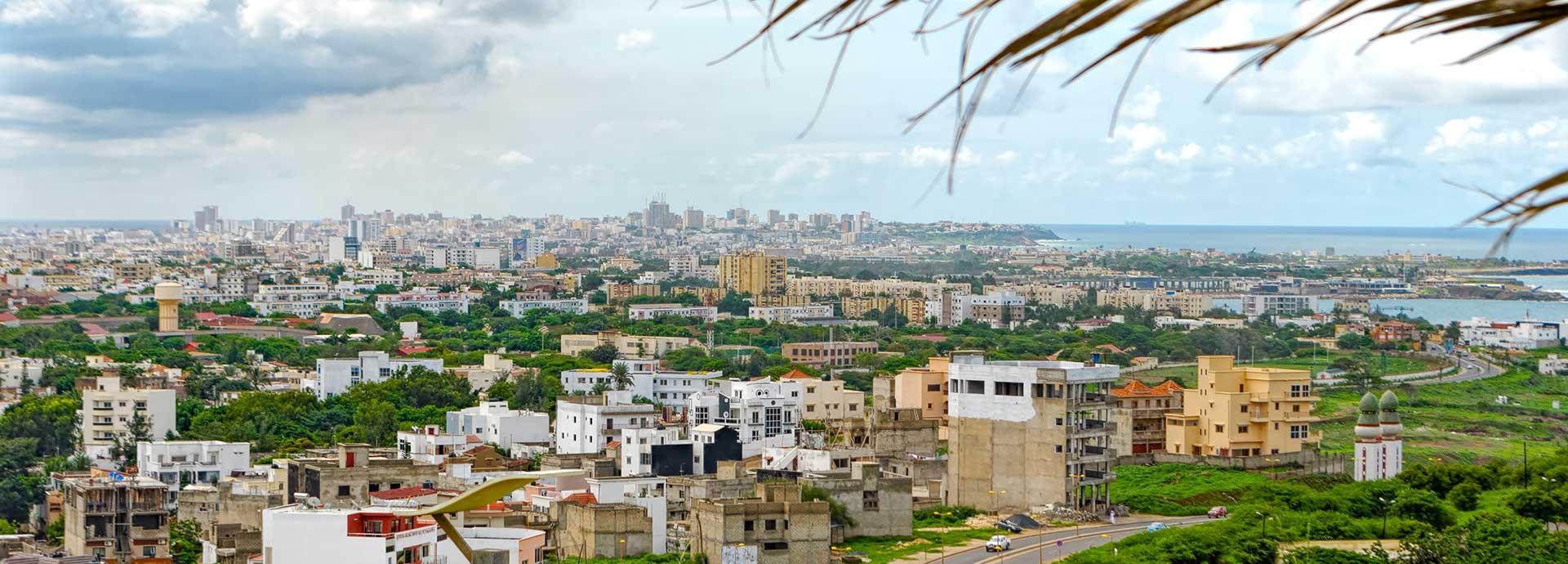

In Senegal, talented students often struggle to find their place in working life. Wärtsilä provides local institutions with hands-on training and support as part of its corporate social responsibility efforts.
Senegalese Souleymane Diallo has his mind set to landing a dream job: working with information systems.
“It’s a very large domain,” he explains over Skype from Dakar. “You learn new tools for managing a company, which enables you to do a lot of different things.”
Diallo recently started working at Wärtsilä’s West Africa office in the capital of Senegal. Throughout the seven months of his internship, he’s worked with the IT department and the HR team, making use of his master’s degree in information system management.
“I’ve been able to apply and practise what I’ve learned during my degree,” Diallo says. “The internship has even changed my career aspirations, and the vision I have now is very different.”
For Diallo, the opportunity arose as he was finishing his degree at Ziguinchor University. Wärtsilä supports the university by providing scholarships, internships, training and equipment.
In Diallo’s view, Senegalese students often lack opportunities after finishing formal education. “Even if a student does well at the university and graduates with good results, there aren’t a lot of opportunities available,” he explains. “Getting a job at all can be difficult, let alone a good one.”

Souleymane Diallo recently started working at Wärtsilä’s West Africa office in the capital of Senegal.
A shared cause for all sectors
Lydia Murimi, Senior Private Sector Specialist at Global Partnership for Education (GPE) – a partnership and funding platform aiming to strengthen education systems in developing countries – sees an opportunity in company partnerships. She believes that an educated workforce is a key competitive advantage to any country, and its impact both socially and economically shouldn’t be underestimated. For companies, it leads to a supply of skilled employees and a supply chain as well as clients.
“Companies that contribute to education and act as thought leaders help build the whole ecosystem in the society.”
She emphasises that real engagement is more than just a “cut a check and go” approach.
“When companies and all other key stakeholders take ownership and truly want to understand the context and the challenges, everyone will benefit,” she notes. “Understandably the NGO world as well as the public and private sectors can have different priorities, but they all have much more at stake and in common than the sum of their differences.”
A lot can be done by supporting primary education, too. According to UNICEF, in Senegal only 66 percent of 15 to 24-year-olds are literate and more than one fifth of children of primary school age are out of school.
Murimi points out that as primary education forms the foundation for learning, the most fruitful investment is to ensure that all children, including minorities and kids with disabilities, have access to high-quality education.
Women wanted in the world of tech
Another challenge in Senegal is the inequality of education between men and women. UNESCO statistics show that although in pre-primary and primary education girls and boys are almost equal, men are much more likely to attend tertiary education.
Murimi says that women having access to education has plenty of positive spillover effects.
“It really goes a long way to educate women, as it makes a huge impact on the family and the community. Educated women tend to make sure their children go to school too.”
Salimata Dia, communications coordinator from Wärtsilä West Africa, agrees. She points out that over and above improving access to education in remote areas, Wärtsilä seeks to encourage women to take part in technical training and internships as well.
“Our aim is to help skilled students fulfil their potential, regardless of their background, instead of having to drop out of school due to lack of access or funds.”
Empowering communities
Wärtsilä’s partnerships with educational institutions in West Africa are part of the company’s corporate social responsibility programme. Wärtsilä has involved its customers, too. For example, Cosama and Vivo Energy Senegal have contributed to the training and professional integration of students and young graduates in Ziguinchor. In Senegal, Wärtsilä also has a partnership with ESP Polytechnic Superior School of Dakar.
Going forward, Dia says, Wärtsilä is planning to establish similar collaborations in Mauritania and then spread the practice to new locations. The main goal of the partnership is to facilitate the progress of young students and support unprivileged graduates to access workforce. Another focus is on assisting communities.
“As Wärtsilä is operating power plants on different sites, it’s an important part of our CSR programme to help the local communities,” says Dia.
Murimi from GPE notes that communities often expect companies to contribute to their wellbeing. Employees also want to feel that the company is working for the wider good and demand actions to advance social responsibility.
Take the case of Diallo. He says it’s important for him to be able to live near his family and contribute to the country’s wellbeing. With Wärtsilä, he feels he can do both.